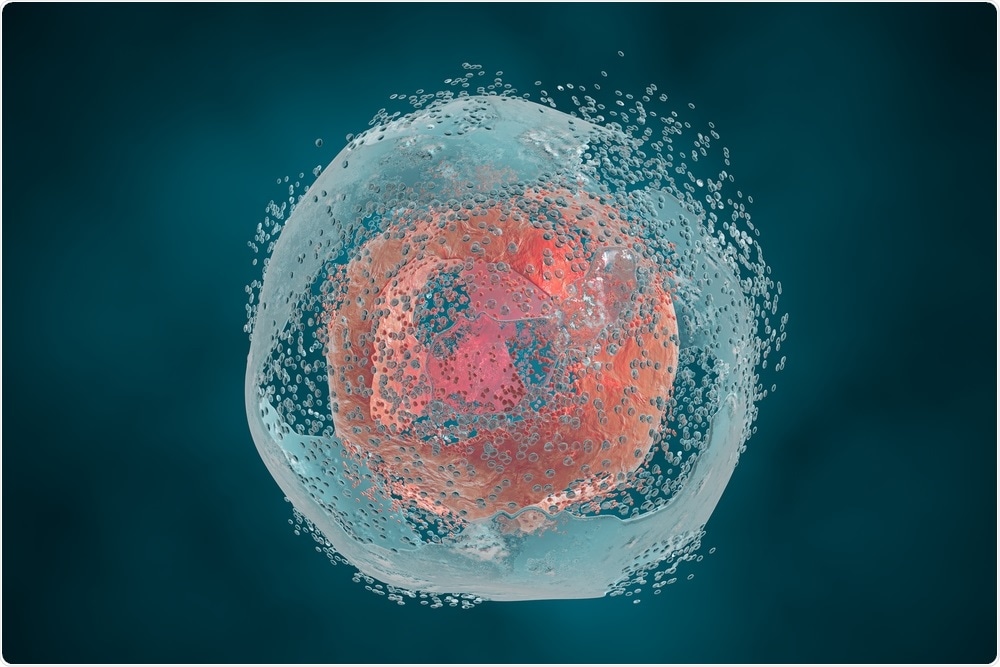Scientists in Australia have shown that they can successfully stop the process of cell death through the use of a revolutionary new compound. This innovation carries huge implications that are likely to change the face of the future of healthcare, most notably, scientists believe they can develop this work to increase patient’s chances of survival following acute injury.
 Kateryna Kon | Shutterstock
Kateryna Kon | Shutterstock
Groundbreaking development in cell death prevention
Apoptosis is the process of programmed cell death that occurs as part of normal functioning in the body, it manages the elimination of cancerous and virus-infected cells and is a normal part of an organism's growth and development.
However, scientists have figured out that in preventing apoptosis in specific scenarios, they can improve the recovery outlook for patients having suffered an acute injury, and even potentially prevent death.
The medical applications for a method of preventing apoptosis could be vast, from preventing damage to cells following heart attacks to aiding in the preservation of organs used for transplants. The future of medical emergency procedures could be significantly impacted by the work that has come out of 11 years of research at the Walter and Eliza Hall Institute of Medical Research.
Researchers at the institute, led by Professor Lessene, have successfully demonstrated in a laboratory setting that they have created a new 'cell death blocker’ with the capability of keeping cells alive when they would have otherwise died. This is the first time such an effective method of preventing the first stages of apoptosis has been recorded.
The development could save lives
This development is of utmost importance because it has the potential to save lives. Acute injury, such as those caused due to a single, traumatic event, can lead to rapid cell death which can influence loss and weakening of both tissues and muscles.
Theoretically, a system that could stop this kind of cell loss in its tracks could prevent damage to the body, and therefore improve on healing time, further to this, it could possibly even prevent death.
Stopping cell death in the lab
While the process of apoptosis is necessary in a healthy and functioning body, in the circumstances of injury it is responsible for the irreversible death of cells which can lead to death and significant bodily damage. For this reason, a method of preventing this process has been explored in order to aid emergency medical care.
The 'BCL-2 family' of proteins controls the process of apoptosis. Scientists have uncovered that within this family, the BAK and BAX proteins are those that drive cells to the stage of death that is known as the ‘point of no return’, the point where damage is irreversible.
Once either of these specific proteins have become activated, a series of events is triggered leading to cell death. Once triggered there is no stopping cell death from occurring, so the key lines within disabling these proteins.
In a paper published this month in Nature Chemical Biology, scientists at the Walter and Eliza Hall Institute of Medical Research demonstrated that they had been successful in developing a compound that was effective at disabling BAK.
In laboratory tests, they showed the compound’s effectiveness in stopping apoptosis from occurring, having the impact of keeping cells functioning when they would have otherwise died. The compound was able to stop the triggering of events leading to cell death right at the beginning of the process.
Scientists developed this cell death blocker drug after an extensive screening process, investigating the potential of a quarter of a million small drug molecules.
Next: Human trials
The next steps for this research will involve developing a method of administering these cell death blockers to humans in a way that is both effective and safe. Experts involved in the research believe that the drug may be of use in even more applications the future, such as preventing degenerative diseases.
Journal reference:
Delft, M. F. (2019). A small molecule interacts with VDAC2 to block mouse BAK-driven apoptosis. Nature Chemical Biology. DOI: 10.1038/s41589-019-0365-8